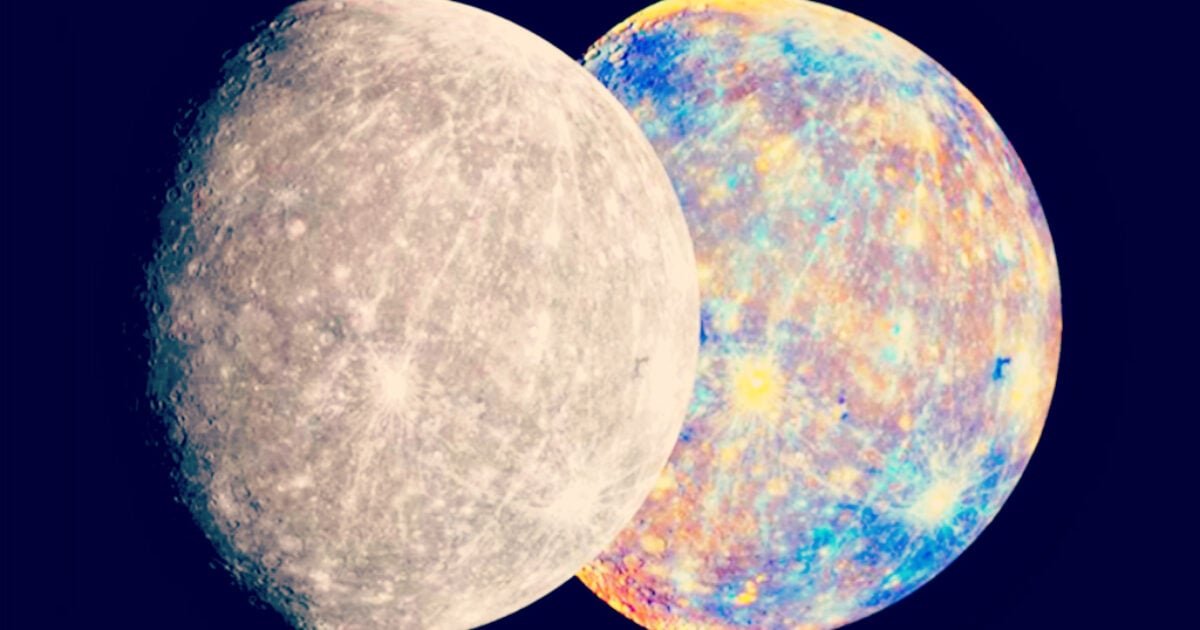
Space is still the final frontier, and as much as humans have studied what lies beyond our planet Earth, we still know very little, and of what we think we know, much is just plain wrong.
Even when it comes to our neighboring planets from the Solar system, we are still piecing together information to understand them better.
In a shining example of just how little we know about them, it now arises that the smallest planet in our galaxy may hold unimaginable riches beneath its surface, according to a stunning discovery by NASA’s MESSENGER spacecraft.
Mercury, the closest planet to the sun, may contain a 10-mile thick mantle layer of diamonds.
The dark-colored patches of graphite on Mercury’s surface have long been a scientific mystery, and suggests it may once have had ‘a carbon-rich magma ocean’.
The New York Post reported:
“The same geological process would likely have also created a carbon-rich mantle — however new data and a reevaluation of mass on the planet’s surface suggest that the mantle is not made of graphite, but precious diamond.
‘We calculate that, given the new estimate of the pressure at the mantle-core boundary, and knowing that Mercury is a carbon-rich planet, the carbon-bearing mineral that would form at the interface between mantle and core is diamond and not graphite’, team member Olivier Namur, an associate professor at KU Leuven, told Space.com.
‘We directly thought that this must have a huge implication for the speciation [the distribution of an element or an allotrope amongst chemical species in a system] of carbon, diamond vs graphite, on Mercury’, Namur added.”

MESSENGER was the first spacecraft to orbit Mercury from 2011 to 2015, mapping the entire planet and collecting data about its geology and magnetic field, before crashing into the planet and ending its mission.
“’We believe that diamond could have been formed by two processes. First is the crystallization of the magma ocean, but this process likely contributed to forming only a very thin diamond layer at the core/mantle interface’, Namur told the outlet. ‘Secondly, and most importantly, the crystallization of the metal core of Mercury’.”
When Mercury formed some 4.5 billion years ago, its core was liquid before slowly crystallizing over time.
“’Mercury formed much closer to the sun, likely from a carbon-rich cloud of dust. As a consequence, Mercury contains less oxygen and more carbon than other planets, which led to the formation of a diamond layer’, Namur said.”
The post MERCURY IN THE SKY WITH DIAMONDS: Smallest Planet on Solar System May Have a 10-Mile Thick Mantle of Diamonds Beneath Its Surface, According to Data by NASA’s Messenger Spacecraft appeared first on The Gateway Pundit.
Source: The Gateway Pundit
Disclaimer: TruthPuke LLC hereby clarifies that the editors, in numerous instances, are not accountable for the origination of news posts. Furthermore, the expression of opinions within exclusives authored by TruthPuke Editors does not automatically reflect the viewpoints or convictions held by TruthPuke Management.







